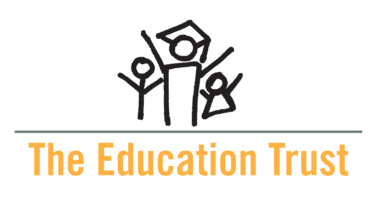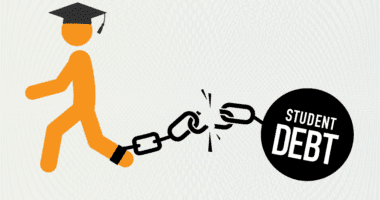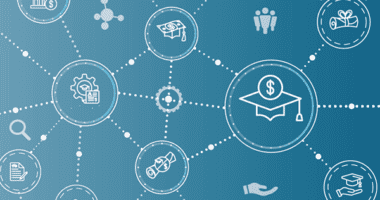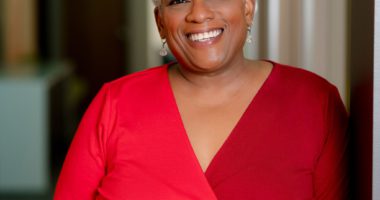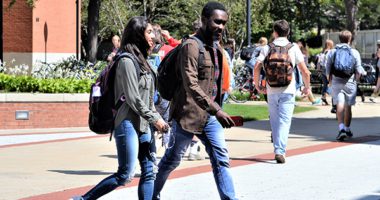Looking Back and Looking Forward to Reclaim the Future
Remarks delivered by John B. King Jr. at the University of Maryland – Eastern Shore Spring 2019 Commencement.
Introduction
Thank you, Aajah, for the kind introduction. Greetings to the distinguished members of the University of Maryland Eastern Shore, faculty and staff, and honored guests representing Princess Anne and the state of Maryland.
A sincere thank-you to President Anderson for the invitation to speak with you.
And to the graduates receiving your degrees—your families and friends—all of us, celebrate you.
Congratulations, Hawk Nation!
Looking Back and Looking Forward
Today, we are looking back—recalling the path that led each of you to this graduation day, and we honor the storied history of this University by adding a new page to its history book, a history that you helped to write.
Today, we are also looking forward and reclaiming the future through all that is made possible through the education that you received at UMES.
I will speak with you this morning about those dual themes…looking back and looking forward…
And in our time together, I’d like us to reflect on what it means to be worthy of the legacy of those who came before us…and what it means to carry on that legacy for the future of our families and our communities.
The University and its Graduates
Let’s start by looking back.
The University of Maryland Eastern Shore opened its doors 133 years ago and has grown into a vibrant institution that daily carries on its proud legacy as an HBCU.
Today, many of these schools serve as an example for peer institutions and for people who, too often, view students of color, first-generation college students, and students from low-income families through the lens of their struggles rather than their potential for success.
Those of you receiving your degrees today understand what it feels like to succeed because your school supported you.
Some of you juggled academics while taking care of family, or the responsibilities of being a parent or spouse.
Husband and wife duo, Racheal and Deshondre, who met in middle school, are both graduating today as first-generation college students. It wasn’t always easy pursuing their education while being new to married life…and dealing with hardship when it came.
On the road to their degrees, Deshondre’s grandmother passed away and he had to take time off from school. But the support Rachael and Deshondre found in each other and through UMES made it possible for them to graduate.
All of you made it to this day not only because of your determination, but also because of your families, your professors, mentors, and peers who lifted you up, reminding you of what you could achieve.
Let’s give all of them a round of applause.
A Personal Connection to This Work and This Place
Today, I’m especially honored to speak with you. My own history and how I came to dedicate my career to education are both wrapped up in this university.
You see, my grandmother, Estelle Livingston Stansberry King, attended UMES when it was called Princess Anne Academy. She graduated from here in 1894 and became a nurse.
My grandmother recognized the importance of education and encouraged her sons to attend college in the 1920s and 1930s, when racism and segregation made higher learning inaccessible to most Black men.
Thanks to her, my father became a career public school educator and the first Black principal in Brooklyn, New York. My uncle, William “Dolly” King, was a celebrated college athlete who became one of the first Black players to integrate professional basketball. And another of Estelle’s sons, my uncle, Haldane King, was a Tuskegee Airman—one of the first African-American pilots to serve in the U.S. military—and a career air force officer.
My grandmother’s example shows the transformative power of education…for generations.
It is in large part because of my grandmother, my father, and my mother—who was a school counselor—that I pursued a career in which I’d honor their memories as an educator myself. A career that led me to serve in President Obama’s Cabinet and to advocate for educational equity.
Looking back, I can see how my great grandfather’s decision to send his daughter to UMES helped to create a legacy of opportunity for an entire family.
And I can unequivocally say that education hasn’t only been a professional calling for me, it literally saved my life. It’s why I am able to stand on this stage and why I am alive today.
My mother passed away when I was eight, in October of the fourth grade. Afterward, I lived with my father, who suffered from undiagnosed Alzheimer’s. No one knew he was sick, so home, at times, was scary and unpredictable.
I can recall one night when, as a child, my father woke me up at two o’clock in the morning to go to school. I remember crying and clinging to the banister of our staircase as he pulled on my arm and insisted it was time to go.
During this time, I had to grow up quickly. As my father got sicker, I learned to do laundry, shop for groceries, and sign checks in his name to pay overdue bills.
But school became my refuge.
My New York City public school teachers made school a safe, engaging, and joyful place—where I could be a kid when I couldn’t be a kid at home. I can recall the things we did in the fourth, fifth, and sixth grades like it was yesterday. We performed A Midsummer Night’s Dream—Shakespeare in elementary school. We performed Alice in Wonderland and I was The Rose with big red, felt petals sticking out of my head. We went to the museum and the ballet—and thanks to my teacher, Mr. Osterweil, we learned about a whole world beyond Canarsie, Brooklyn.
But my life was not a straight line. Like many young people who experience trauma early in life, by the time I became a teenager, I was angry. Angry at my parents. Angry at adults. Just angry. And I rebelled against authority. I got in trouble. In fact, I’m the first Secretary of Education ever to have been kicked out of high school; but I hope I am not the last. My story is also about second chances.
It would have been easy as I was growing up for adults to give up on me—an African-American and Latino male student with a family in crisis. But I was blessed to have family members and educators who saw me as more than the mistakes that I had made, who gave me hope and helped me see a path for my future.
Doing Work for the Inheritance of a More Just Society
I began my remarks today saying I would share what I believe it means to carry on the legacy of this University and those who opened opportunities for you. Part of what that means, I think, is applying your learning so that you can give back, whether you’re from New Market or Salisbury.
Whether you’ve chosen to study and work in education, medicine, construction management, or any program UMES offers, you have the opportunity to contribute to this effort each day. You’ll be teaching, improving people’s quality of life, literally building and strengthening communities, and paying your education forward by serving others.
But honoring the history of this University and those who contributed to your success requires something more than the application of your craft.
The founders of UMES opened this school to fight intolerance and racism and to lift up those who were oppressed. They recognized, as Frederick Douglass—a native of the Eastern Shore—once said, that education “means emancipation.”
For more than a century, UMES, like many HBCUs, has provided its students with the knowledge and skills not only to reach their promise, but also to challenge institutional racism and bias.
Especially at this challenging time for our nation, I want to suggest that this is the work in which you also must engage—to find every opportunity to help those who are less advantaged and to stand against prejudice and hate in all their forms.
At UMES, you learned with an intentionally diverse faculty and with peers—originating from more than 70 countries—who have various backgrounds and worldviews.
As a result, you’re more prepared, and perhaps more inclined, to challenge intolerance when you see it.
Unfortunately, there are too many examples of racism and hate in our present time…
From the inhumane treatment of immigrant children and families at the border…to the rollback of federal civil rights and voting protections…to the fact that Black mothers die in childbirth at more than three times the rate of White mothers…to the countless, tragic, and unnecessary deaths of Black people across America, after interactions with the police.
When it comes to making our democratic society work, as President Obama said in a recent speech: “We have to be able to get inside the reality of people who are different, who have different experiences, who come from different backgrounds. We have to engage them even when it is frustrating. We have to listen to them, even when we don’t like what they have to say….We have to bring people together, not tear them apart.”
HBCUs like UMES long have broken down barriers and have been at the vanguard of civil rights advancements.
I think of the pivotal role of Howard Law School Dean Charles Hamilton Houston and his student, Thurgood Marshall, in crafting the legal strategy to defeat Jim Crow segregation.
I think of the students at North Carolina A&T who led the lunch counter sit-ins in Greensboro, North Carolina.
And I think of all of you—students, faculty, and University leaders here at UMES—who learn and teach at an institution that provided educational opportunity to Black Americans at a time in history when we were barred from learning at other colleges in this country.
On this commencement day, we are looking back and looking forward.
Graduates, you and I are where we are now because our pasts and our futures have been knitted together through education and by the people who came before us, who showed us the way.
People like those who envisioned and founded a university like UMES.
Closing
In preparing to give these remarks at the university from which my grandmother graduated, I did some additional research into my family history.
And I discovered that my great-grandfather was born into slavery in Montgomery County, less than 25 miles from my home in Silver Spring in Montgomery County.
The property where my great-grandfather lived is still owned by the direct descendants of those who enslaved him. The slave quarters where he grew up—a small, cramped wooden cabin—is still standing. I visited there with my wife and two young daughters recently; we met the current owners of the property.
I experienced many emotions.
The slave quarters is just feet from the main house. Seeing that, I was struck that there could be such intimacy in oppression. Struck by the cruelty and exploitation of which human beings are capable.
At the same time, I also was struck with a profound sense of hopefulness. Yes, hope.
My great-grandfather grew up enslaved before the Civil War. And three generations later, his great-grandson—the man standing before you—served in the Cabinet of the first Black president of the United States.
In this story, and so many others like mine, there is a sense of the degree to which America is always…becoming. Continuously striving. Reaching to attain her highest ideals. Striving to be truer to the founding principles of equality and democracy.
My great-grandfather and my great-great-grandfather—who is buried in an unmarked grave on that same property I visited—lived their lives in the hope of a future they could not see. They could not have imagined the life that I and my daughters are blessed to have in this very same country, in the very same county.
I’ll leave you with this…
Ultimately, our obligation is to live for the generations ahead of us.
That’s what it really means to be worthy of the legacy of those who came before us.
So, graduates, each of us must do work for the inheritance of the future. For a more just society. A democracy that is strong. A healthy planet. Institutions that truly serve everybody.
Earlier this morning, we all heard, “Lift Every Voice and Sing.”
The song asks, “Have not our weary feet come to the place for which our fathers sighed?”
Indeed, this university and your accomplishments are a testament to the hopes, the blood, and the tears of generations past. Generations who fought for your right to an education that gives you the freedom to become whatever you dream you can be.
I hope you’ll be the kind of people who give back, who lift as you climb, and who help our nation become what it can be.
Like the song says, you now “stand at last where the white gleam of our bright star is cast.” Just remember, when the light of opportunity shines on you, you have the chance to make those who came before you proud by expanding the reach of its glow.
Thank you—and congratulations, Class of 2019!

